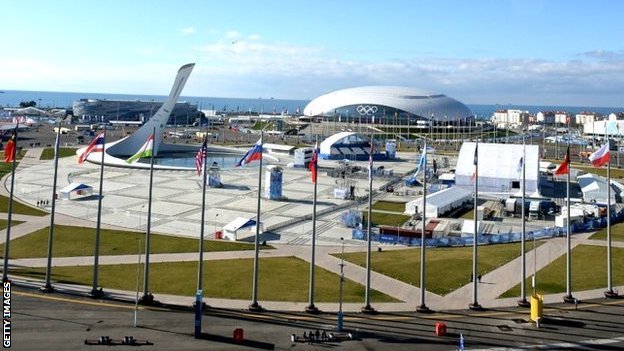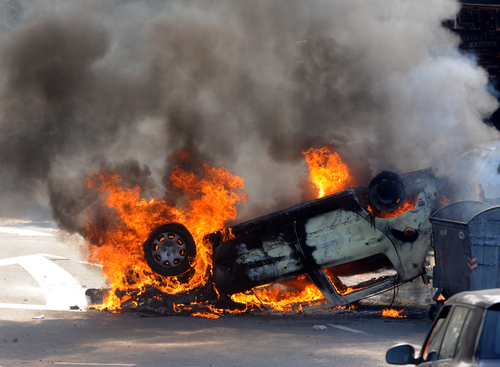This is the second of two installments on corruption and the Sochi Olympics. Read part one here.
Russia’s New Public Procurement Law No-44 FL
Federal Law No-44-FL, “On the contract system for the procurement of goods, works and services for the supply of government and municipal needs,” represents a comprehensive reform of the Russian procurement framework. There is little doubt that the Russian government has an interest in developing the procurement system. Corruption, graft and inefficiency are endemic; however, an additional incentive to reform the system has come from a different source. When Russia acceded to the World Trade Organization (WTO) on August 22, 2012, it agreed to implement changes to the public procurement system and sign the WTO Government Procurement Agreement in four years. It applied for observer status in April 2013. Federal Law No 44 was adopted on April 5, 2014. Soon after, on May 29, Russia received observer status within the Agreement on Government Procurement (GPA). Accordingly, Federal Law No-44 came about in part due to the WTO system.
Under Federal Law No-94, the procurement process had many shortcomings. Nearly 37 amendments were made to the law between 2010 and 2013. Yet the General Prosecutor’s Office (GPO) issued a press release on January 9, 2014 describing public procurement violations for 2013: almost 74,000 violations were discovered and 500 criminal cases were initiated. Nearly 20,000 individuals have been charged with administrative offenses. Chief risk areas included unsupported initial maximum start prices, falsification of purchase orders to misappropriate government funds, the division of public orders into multiple units to bypass procurement procedure, overstating prices, altering terms to increase costs during performance and other infractions.
Federal Law No-44 aims to modernize the process for creating and monitoring orders for public goods and services and introducing transparency and professionalism into the contracts sector. An anti-corruption and bid-security system is also set to enter force. The reforms are expected to promote public contracts involving higher value goods and services. At the same time, ordering parties (e.g. government entities) can avoid the risk of improperly using state funds and demonstrate the efficiency of the procurements through mandatory phases, set forth in Articles 16, 17 and 21, providing for roadmaps, planning schedules and analysis of order specifications (involving expert opinions when needed) to avoid alterations to the order and stay on schedule.
Furthermore, the types of entities that are subject to the new law’s planning requirements include not only state and municipal entities, but also autonomous agencies, government and municipal “unitary enterprises” and other semi-public legal entities – although, notably, state corporations are still exempt. The Law significantly expands the control of state authorities over the procurement procedure. Previously, such compliance was the responsibility of the Federal Anti-monopoly Service of Russia and local administrative authorities. The new law expands the scope of oversight to include non-budgetary funds management authorities (for certain semi-public companies), the Audit Chamber of the Russian Federation and other financial authorities. Overlapping between state authorities over the same public procurement is resolved according to the seniority of the authorities, whereby the decision of the highest authority shall control. The entire system will be made publicly available using an Internet-based “unified information system” which enters into effect in 2015.
Another new element is the “anti-dumping” safeguards in Article 37. If a bidding entity proposes a price 25 percent lower than the starting maximum price of the contract or more, the contract may only be approved once the bidder posts collateral. Alternatives are available for those able to verify a history of good-faith performance for at least one year prior to the bid date. Performance security for procurement participants that have reduced the maximum price by more than 25 percent is also a new feature. Such parties must, upon executing a contract, provide security in an amount that is 50 percent higher than the amount in procurement documentation. Other provisions permit cancellation of contracts if prices are excessive and upon the discovery of certain “beneficiaries.” If an initial maximum price exceeds valuations set forth by the government, parties must provide information about their management structure and individuals or entities that own, directly or indirectly, more than 10 percent of voting shares in a business entity, or a participatory interest of more than 10 percent of the charter capital of that entity. If such information is not provided and the beneficiary is related to a contracting party, a procurement contract can be cancelled.
Lessons Learned in Sochi
The Sochi Olympics reveal the high risk of dealing with certain types of investments in Russia. Companies often face problems owing to the ignorance of the authorities, who rarely have expertise to understand the needs of a complex stadium or other facility. Agencies that lack professionals who understand precisely what the facilities entail are especially high risk. This was true in Sochi, as Olympstroy altered the specifications repeatedly and all projects differed substantially from their contract designs.
The preparations for the 2018 FIFA World Cup in Russia are facing the same problems. As Dmitry Bush, a stadium design contractor explained: “It is practically impossible to organize the design of a unique, large-span, complex object through government structures.” Investigators discovered cost overruns there as well, with auditors finding $4.9 million of “unnecessary costs” spent on St. Petersburg’s new stadium in 2013.
Federal Law No-44 appears tailored to ameliorate these risks through the use of a procurement planning phase, expert opinions to determine contract specifications before entering the contract and extensive monitoring through the unified information system. The anti-dumping safeguards also encourage highly qualified firms with a record of reliable performance to be selected over companies who bid low. Federal Law No-44 may prove so successful that its concepts are extended to state corporations, where the risks of corruption are very high. If so, the long-term effects of Russia’s new procurement framework would be more beneficial than any Olympic success.













